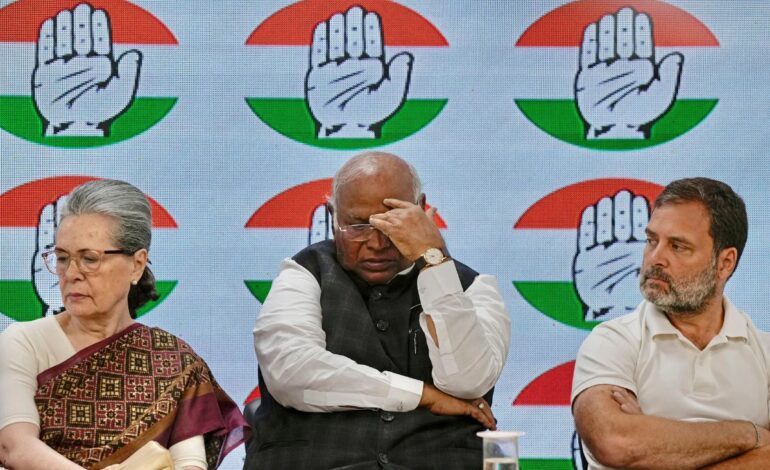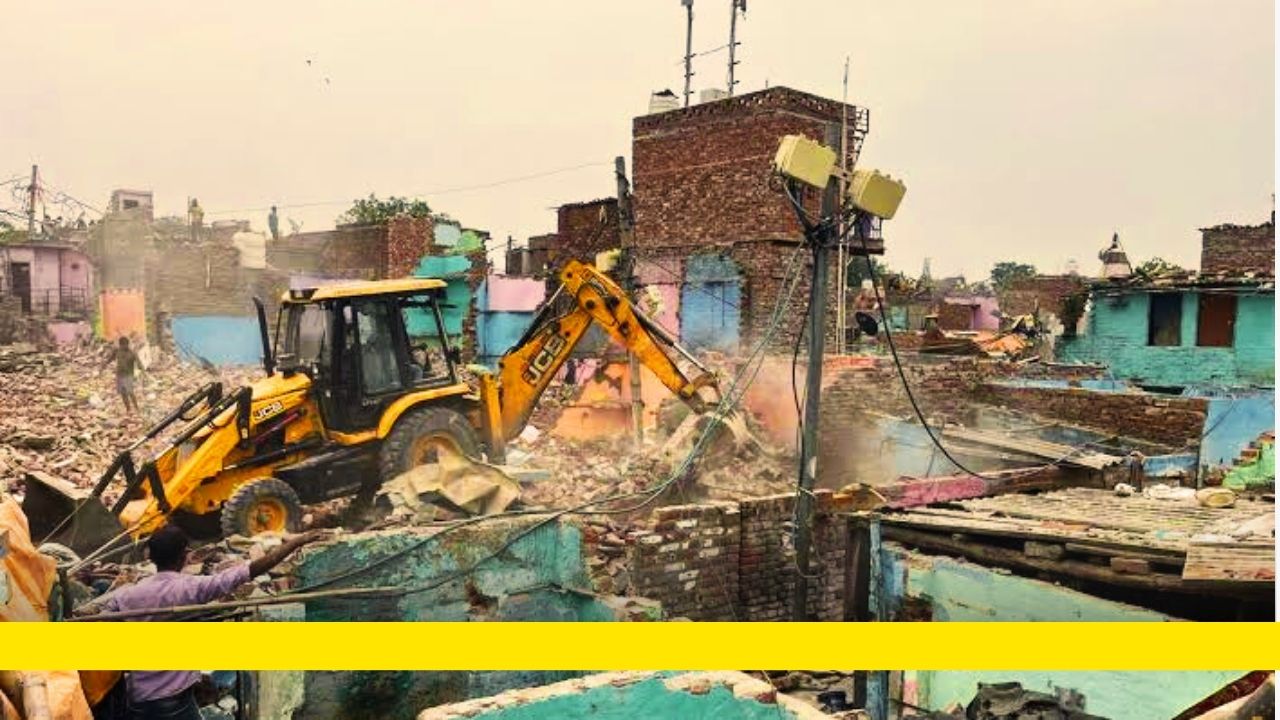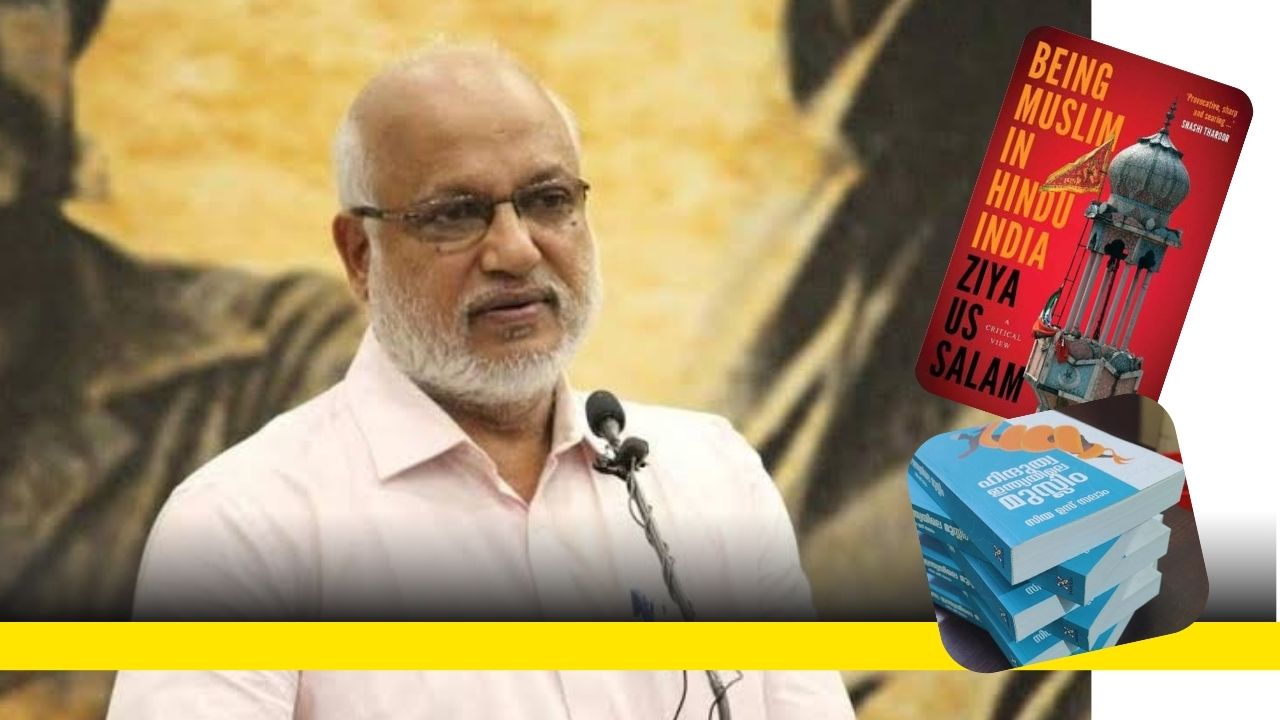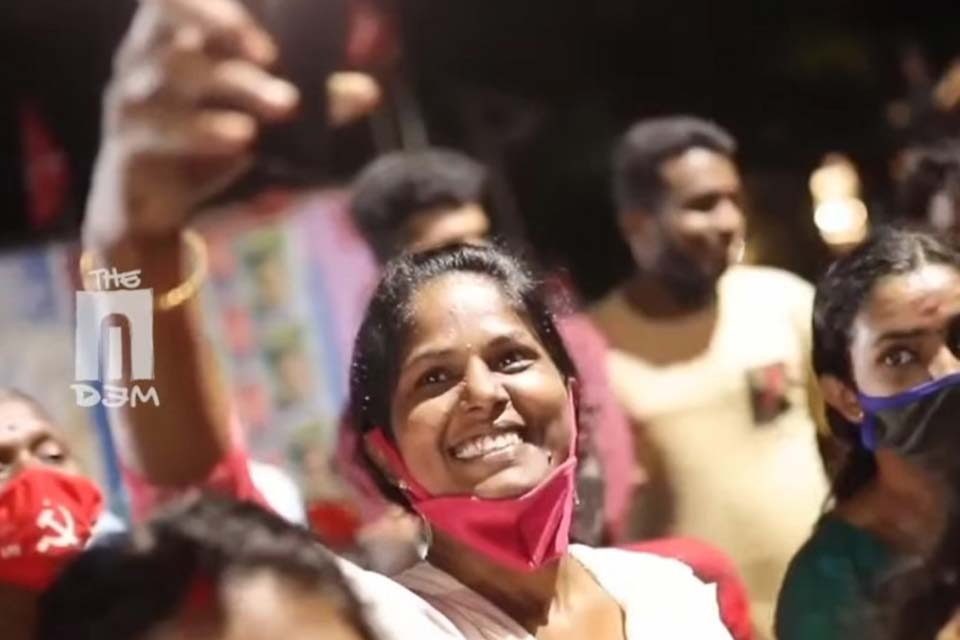
The Indian National Congress has dissolved its state unit in Uttar Pradesh. This is certainly in early preparation for the next State assembly elections due in the early months of 2027. However, the big question is whether this is a good enough move considering the fact that the next State assembly elections would happen in the next 24 months.
After years of underperformance and the humiliating defeat in the 2022 assembly election, in which the Congress lost its deposit on 97% of seats it contested – that is 387 out of 399 seats it contested – party workers and supporters in State have been urging for an urgent overhaul of the State unit. The total number of seats in the Uttar Pradesh assembly is 403.
It has taken the party nearly three full years to even initiate a revamp process. So, the question among a large section of party workers is whether the leadership has delayed the revamp for too long ? The question is supplemented by differing perceptions within the rank and file on the effect this delayed process would have. One stream of opinion has it that this delay is a sure recipe for repeating the story of serial defeats. However, a small section of the party cadre believe that there is still hope of revival.
Uttar Pradesh is pivotal to the Congress party’s bid to regain power at the center. With 80 Lok Sabha seats out of 543 and 31 members in the 245-member Rajya Sabha (233 of whom are elected), the State holds significant sway in the Parliament. Beyond the sheer number of MPs it contributes to, Uttar Pradesh’s vast population and extensive area amplify the political clout of any party that dominates it.
Fortunes at Decadel Low
Despite its better-than-expected performance in the 2024 Lok Sabha elections, thanks to its alliance with the Samajwadi Party ( SP ), the Congress remains its weakest in Uttar Pradesh. The party faced its worst-ever performances in the 2022 assembly elections and the 2023 civic body elections.
There is no district, city, or region where Congress can claim dominance. Even in Raebareli, a parliamentary election stronghold since 1952, the party has struggled in assembly and civic body elections. This history of the Raebareli Lok Sabha is such that except for brief periods when Raj Narain defeated Indira Gandhi (1977-1980) and when the BJP won consecutively (1996-1998 and 1998-1999), the constituency has stood with the Congress.
Similarly, Amethi is also a traditional bastion of the Gandhis, which has only favoured Congress in Lok Sabha elections. This started with Sanjay Gandhi winning in 1980, and the winning streak continued till 2019 when Rahul Gandhi was defeated by BJP’s firebrand women leader Smriti Irani. But Amethi too has favoured other parties in assembly and civic body elections. Congress won zero seats in the 10 assembly constituencies in Raebareli and Amethi in 2022..
Priyanka Gandhi’s disastrous tenure
In a desperate attempt to revive the party’s fortune in India’s biggest state by population, Congress appointed Priyanka Gandhi as the AICC General Secretary in charge of Uttar Pradesh. But, the party’s fortunes went downhill faster under her tenure. If the party was on crutches before 2019, it went on a ventilator during her term, where it has been since then.
Congress’ dismal fortunes in different elections in Uttar Pradesh are fairly well known to anyone who even takes a cursory interest in Indian politics. However, the scale of its organisational decline is not that well known. The party could not find candidates for all 403 assembly seats in the 2022 assembly elections. In the 2023 civic elections, it could not find candidates to contest on sizable number of seats.

Out of 1,420 councilor seats, it contested only 862 and won 77, with candidates losing deposits in 678 seats. That is a whopping 79% of contested seats. In the home district of Ajay Rai, the State President till dissolution of organisational structures, the party couldn’t field candidates in all the 100 wards in the municipal elections in 2023, managing to contest only 86 seats, while extending support to other parties on the rest of the 14 seats. It managed to win only 8 seats, losing the deposit on 68 seats.
A young leader, then Vice-President of the state unit, from a once-prominent Brahmin family in eastern Uttar Pradesh, was aggrieved by the high-handedness of Priyanka Gandhi’s secretarial staff. When he approached the central leadership to complain, he was told there would be no interference in Uttar Pradesh. He resigned a few days later. Such was the free hand given to Priyanka Gandhi. In December 2023, a few months before the 2024 general elections, Priyanka Gandhi was relieved of her duties as the General Secretary in charge of the state.
How can the Congress revive its fortune?
I spoke with a person involved in Shashi Tharoor’s campaign for Congress President in October 2022, who had personally spoken with nearly 250 PCC delegates, members of the party’s State unit nominated to vote in the internal elections. He was part of the team that engaged with over 900 delegates during the campaign, across the State and representing diverse sections of society, including women, Dalits, and Muslims. The team conversed with long-term party members from the 1970s, former ministers from the last Congress government in the state (1985-1989), and newcomers to the party. The suggestions are based on these team’s feedback on the wide ranging public interactions:
- A Humble Acceptance by Gandhis of their Failure: Compared to other State units, Uttar Pradesh’s unit experiences more interference from the Gandhis (or their coterie) on account of the fact that Uttar Pradesh houses their parliamentary constituency. The State unit head has lesser autonomy in building his or her team and conducting party affairs without continuous meddling from the high command. MThis problematic practice dates back to when Sonia Gandhi took the reins of the party and continues to this day. Despite this overzealous interest in state affairs, electoral fortunes have dwindled, and organizational strength has weakened. The Gandhis, primarily Rahul and Priyanka, should humbly accept their ineptness and inability to revive the party in Uttar Pradesh. Had UP Congress been a company and the Gandhis its CEOs, they would have been summarily sacked long ago.
- Desist from appointing an outsider as State President: Starting from appointing Rita Bahuguna Joshi as the state president in 2007 to current president Ajay Rai, including Raj Babbar and Ajay Kumar ‘Lallu’, the party has tried to bring in outsiders and failed. The party’s experimentation with appointing regional presidents, who were from other parties, failed badly. Unable to adapt to the existing congress party culture, these people stuffed the organization with people, many of whom didn’t believe in party ideology or respect its legacy. They jumped to other parties at the first opportunity. This in turn left workers disenchanted and the organization enervated.
- Empowering long-term party loyalists: It is no exaggeration to say that in every village of Uttar Pradesh, at least one family exists that votes exclusively for Congress, undeterred by its chances of winning. In several districts, you will find supporters who are proud of a family legacy of active participation in the independence struggle. Many went to jail in 1977 to protest against India Gandhi’s arrest. These loyalists continue to advocate for Congress, despite the party being out of power in the State for over 30 years. This long tradition of loyalty has established a party culture that needs to be recognized and respected. Any strategy will succeed only when these loyal supporters are empowered.
- Carving a New Electoral Arithmetic: During its winning days, Congress held sway over Dalit, Muslim, and Brahmin votes in Uttar Pradesh. Dalits first went to BSP, a part of which now votes for BJP. Muslims now swing between Congress and the Samajwadi party depending on Central and state elections. Poor Brahmins have moved to the BJP. Since 2014, the BJP has been successful in sub-dividing caste blocs into smaller sub-sections, like splitting Dalits in Jatavs and non-Jatavs, OBCs in Yadav and non-Yadavs like Nishad, Maurya, Kurmis, etc or forging alliance with many sub-castes have their block-level parties e.g. Suheldev Bhartiya Samaj Party representing Rajbhar community or Apna Dal representing Patels in and around Varanasi. Congress doesn’t fit in any of these equations. Neither the party’s history nor its values fit in this caste arithmetic. In the past when the party tried this route, for example, its “Nadi Adhikar Yatra” in 2021 to attract 13% fishing community votes, it failed. Rahul’s and Priyanka’s occasional sojourns in Uttar Pradesh during incidences of atrocities on SC/ST communities have not helped revive voters’ confidence or provided electoral gains. The party’s best bet would be to find aspirational issues, not specific to a community or group, and start with urban pockets, similar to what the Aam Aadmi Party did in Delhi with its promise of better basic education and health. It has people like Shashi Tharoor, who is appealing to both party supporters, some BJP voters and neutral voters alike. This strategy will complement any possible alliance with the Samajwadi party, which is weak in urban centers.
- Start Small, Win Big: Instead of experimenting across the entire state, the central leadership should focus on constituencies where it is relatively stronger, perfect its strategy there with multiple tweaks, and then expand. The party wasted significant resources during the 2022 assembly elections with the ‘ Ladki Hoon, Lad Sakti Hoon‘ campaign, which had no takers. The party soon abandoned any pretense of women’s representation, with only five office-bearers in its last constituted 130-member state leadership unit. The party would do well to learn from this debacle.
The next assembly elections in Uttar Pradesh are due in March/April 2027. There is still significant time left for Congress to build its base for a respectable tally in the assembly elections. With its meager resources, in terms of money available to the central team, the party would be foolish to concentrate on 80 parliamentary seats or 403 assembly seats in one sweep. Its best interests lie in adhering to the following principles by Bent Flyvberj:
- Understand your odds. If you don’t know them, you won’t win.
- Plan slow, act fast. Getting to the action quickly feels right. But it’s wrong.
- Think from right to left. Start with your goal, then identify the steps to get there.
- Find your Lego. Big is best built from small.












Superb analysis of the situation Shri Gaurav Tiwari . The problem with the Gandhis is that they have not been able to get over their sense of entitlement. It was there right from the time of Indira Gandhi and continues till date despite being out of power for so long
Yes. The sense of entitlement has not led to a sense of accountability.